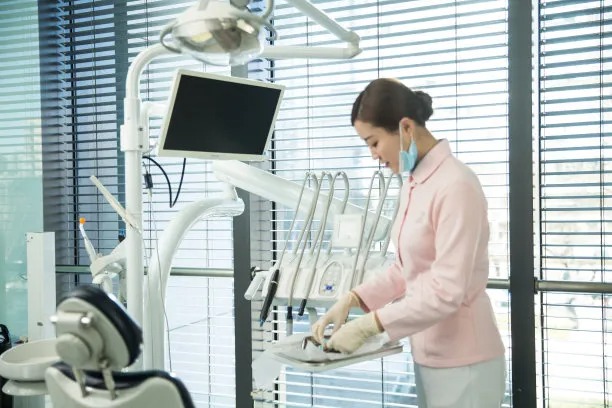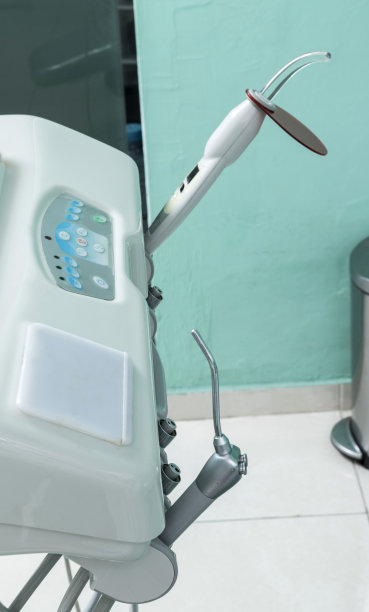Summary: Extracting a tooth may initially seem daunting, but it holds significant importance for maintaining overall oral health and paving the way for future dental well-being. This article outlines the essential reasons behind tooth extraction, focusing on how it alleviates pain, prevents the spread of decay, creates space for proper alignment, and enhances the effectiveness of dental treatments. Each of these points emphasizes how proactive dental care, including tooth extraction when necessary, is vital for preserving the integrity of ones dental landscape, facilitating healthier future treatments, and ultimately contributing to better oral health.
1. Alleviation of Pain and Discomfort

Tooth extraction is often a necessary procedure for alleviating persistent pain and discomfort associated with dental issues. When a tooth is severely decayed, infected, or impacted, it can result in chronic pain that affects daily activities. Extracting such a tooth provides immediate relief and eliminates the source of infection or discomfort.
Moreover, addressing dental pain promptly is essential for mental well-being. Chronic pain can lead to emotional stress, anxiety, and an overall decline in quality of life. By opting for extraction, patients can regain their comfort and improve their emotional state, enabling them to focus on their everyday tasks without the hindrance of dental distress.
In addition, post-extraction treatments, such as dental implants and bridges, offer further solutions to restore a patient’s smile and bite functionality. Thus, extraction not only alleviates immediate discomfort but also lays the foundation for future treatments that enhance dental aesthetics and functionality.
2. Prevention of Tooth Decay Spread
Another critical aspect of tooth extraction is its role in preventing the spread of decay. When a tooth is infected, bacteria can proliferate and potentially move to adjacent teeth, leading to complications such as cavities or periodontal disease. Timely extraction of the affected tooth can prevent these bacteria from spreading, safeguarding surrounding teeth and tissues.
This practice is especially crucial in the case of wisdom teeth, which often become impacted and can create a domino effect of dental problems. Removing problematic wisdom teeth early helps prevent overcrowding and decay in neighboring teeth, ultimately promoting a healthier oral environment.
Additionally, by removing decayed teeth, patients can maintain their oral hygiene more effectively. Fewer problematic teeth make it easier to clean and care for the remaining teeth, reducing the risk of further decay and promoting long-term dental health.
3. Creating Space for Proper Alignment
Tooth extraction can also be instrumental in orthodontics, particularly in creating space for proper alignment of teeth. When teeth are overcrowded, it can lead to misalignment and other dental issues. In many cases, extracting one or more teeth can facilitate the alignment process, enabling orthodontic devices to work more effectively.
Moreover, proper spacing is essential not just for aesthetics, but also for functionality. Misaligned teeth can interfere with bite control, leading to jaw problems and excessive wear on teeth. Extraction, when necessary, allows orthodontists to address these issues more effectively, leading to a healthier and more functional bite.
Additionally, after orthodontic treatment, maintaining space for aligning teeth is crucial. Tooth extraction can assist in obtaining a harmonious result, ensuring that teeth not only look good but also function well together, which is integral to long-term oral health.
4. Enhancing Effectiveness of Dental Treatments
Finally, tooth extraction can significantly enhance the effectiveness of various dental treatments. For example, in cases where disease or decay is present, extracting an unhealthy tooth is often a prerequisite for more complex treatments like root canals or implants. This step helps to ensure that the treatment area is clean and ready for subsequent procedures.
Additionally, tooth extraction allows for a more straightforward path to restorative options. By removing nonviable teeth, dental professionals can focus on restoring the functionality and aesthetics of the smile without the complications introduced by additional decay or infection.
In the long run, a proactive approach to tooth extraction not only can boost the success rates of future treatments but also ensures that the patient embodies better oral health, free from the burdens of decay and pain.
Summary:
In conclusion, the importance of tooth extraction cannot be overstated when considering oral health and future dental well-being. From alleviating pain to preventing the spread of decay, creating space for alignment, and enhancing the effectiveness of dental treatments, extractions play a pivotal role in dental care. Embracing tooth extraction as a proactive measure sets the stage for healthier smiles and enhanced quality of life.
This article is compiled by Vickong Dental and the content is for reference only
Vickong Dental
Vickong Dental is a large medical group established in Hong Kong in 2008 by professors from well-known medical universities in Guangdong and Hong Kong, as well as medical doctors from key national '985' universities (including Master's supervisors and senior professors). The chain of branches brings together expert dentists with PhDs and Master's degrees from Hong Kong and Mainland China, committed to providing high-quality dental treatment.
"Vickong Dental Practices the University Motto of 'Healing and Serving Society,' with a Stable Operation for Sixteen Years. It Has Been honored with Hong Kong Enterprise Leaders's Choice,' and is a Global Trusted Implant Center for the Nobel Implant System. Recommended by Hong Kong Metro Broadcast and Guangdong Television, it Serves Customers from Over Thirty Countries and Regions, Gaining the Trust and Favor of Citizens from the Guangdong-Hong Kong-Macau Greater Bay Area and Surrounding Cities.

Thousands of customers' unanimous praise
The most recognized and highly recommended dental service by customers in the Guangdong-Hong Kong-Macau Greater Bay Area
We Ensure You Receive Detailed Care and Attention Here
Hong Kong standards, Shenzhen prices, Your Trusted English-speaking dentists

Vickong Dental Medical-Grade Instrument Disinfection Process
Vickong Dental Medical-Grade Instrument Disinfection Process

Vickong Dental Chain: A Warm and Comfortable Environment for Treatment






Appointment Hours

Q&A
Why choose Vickong Dental?
Vickong Dental practices the university motto 「Medicine to Benefit Society」, with each branch bringing together highly qualified dentists with doctoral and master’s degrees from Hong Kong and the Mainland, and has maintained seventeen years of steady operation。Recipient of 「2024 Hong Kong Enterprise Leaders Brand」, 「2025 Hong Kong Enterprise Leaders Brand」, a Nobel Biocare Global Trusted Implant Center, and a brand recommended by Metro Radio Hong Kong and Guangdong TV。
To date, we have served customers from more than thirty countries and regions,earning exceptionally high word-of-mouth recognition and trusted recommendations from residents across the Guangdong-Hong Kong-Macao Greater Bay Area and surrounding cities
We have eight major branches in Zhuhai、Shenzhen,and a consultation and service assurance center in Hong Kong,so you can book a free consultation at any time for any questions,which is very reassuring.
If I do not accept the quotation after the CT scan, will I be charged??
No! As long as the actual treatment has not started, you will not be charged any fees.
Will there be any additional charges during the treatment process?
No, there won’t be any additional charges. Before treatment begins, we will clearly explain the treatment plan and its corresponding fees. Only after the patient agrees and signs the consent form will we proceed with the dental service.
Can I pay in Hong Kong dollars?
Yes. Vickong Dental accepts payment in Hong Kong dollars. The amount will be converted based on the exchange rate of the day, and the applicable rate will be clearly communicated to you in advance.
Can I reschedule my appointment at any time?
Yes. Please contact us via **WeChat** or **WhatsApp** as early as possible, providing your original appointment time and details, along with your preferred new date and time slot for rescheduling.













